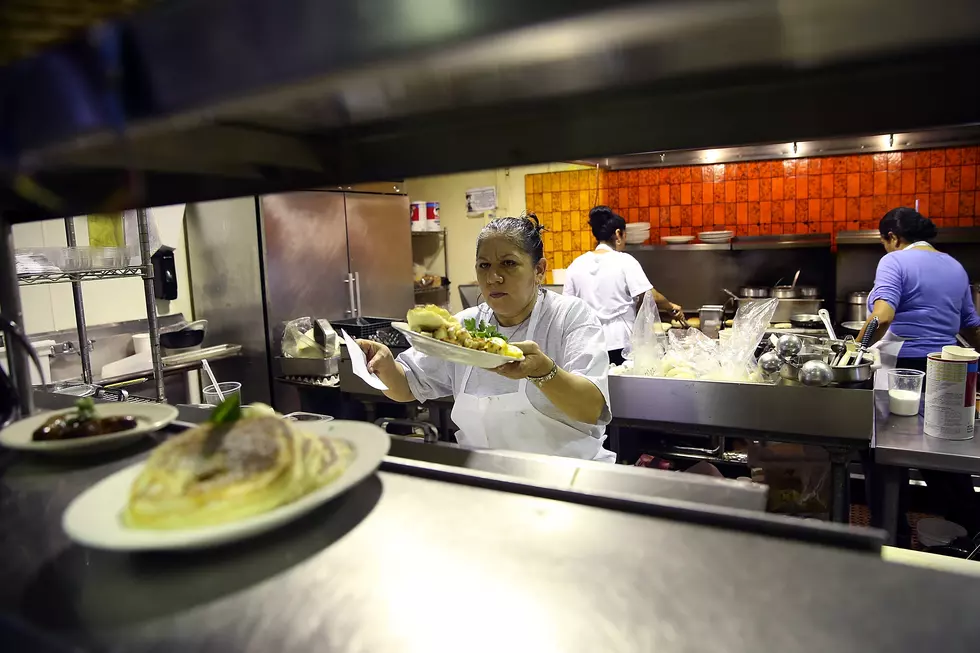
Many States Looking To Help Workers Save For Retirement
ALBANY, N.Y. (AP) — New York is among a growing number of states considering legislation to create government-sponsored payroll-deduction retirement programs for small businesses, which financial planners say could be a relatively painless way to help Americans reverse a dismal record of saving for their golden years.
Personal finance expert Jean Chatzky notes 52 percent of American households age 55 or over have no retirement savings, leaving them with only Social Security. She's working with AARP in New York and other states to lobby for an individual retirement account plan with state oversight for small businesses that allows workers to have a portion of their paychecks set aside automatically.
"In my book of money rules, my favorite one is: 'If you can't see it and can't touch it, you won't spend it,'" Chatzky said. "That's the magic behind the 401(k) and other work-based retirement plans. The problem for 3.5 million New Yorkers is that they don't have access to one."
With an estimated 55 million Americans lacking access to retirement plans at work, 40 states have considered legislation since 2012 to establish state-facilitated retirement programs for private-sector workers. Five have enacted state-run programs and two, New Jersey and Washington state, have launched marketplaces connecting employers with low-cost private-sector retirement plans.
New York's plan, proposed by Democratic Gov. Andrew Cuomo in his 2018 budget and awaiting action in the Legislature, would have a state board oversee investments made through payroll deduction with no employer contribution.
It's similar to initiatives launched in California, Connecticut, Illinois, Maryland and Oregon, but with a key difference: Participation by businesses would be voluntary in New York, while the other five states mandate that companies meeting a certain size threshold automatically enroll all employees.
"We think it's a fantastic idea," said Corey Meyer, who with his wife Sara owns Little Bird Kitchen, a Long Island confectioner that makes jalapeno-laced chocolates. "It allows small businesses to have access to employee perks that normally we can't afford."
The Business Council of New York State, which represents private employers, initially opposed the legislation. But the group is reevaluating its position pending clarification of the voluntary nature of the program, said Lev Ginsburg, the Business Council's financial services expert.
Mandated state-run retirement savings plans have gotten pushback from businesses and Congressional Republicans who say they stifle private competition, impose onerous regulations and expose employers to lawsuits.
Last year, President Donald Trump signed legislation revoking an Obama-era Labor Department rule designed to provide a legal safe haven for the state programs, which Senate Majority Leader Mitch McConnell called "more government at the expense of the private sector and American workers."
In California, where a program administered by a state board will automatically enroll nearly 7 million workers starting in 2019, critics say it could expose taxpayers to a costly bailout if the investment fund plummets during the next recession.
California Republican state Sen. John Moorlach, a certified financial planner, said low-income workers don't save because they can't afford to. He noted that the federal government closed the Obama-era myRA program last summer for lack of demand.
The Treasury Department said the myRA program, launched in late 2015 for people without access to a 401(k) or other workplace retirement plan, had about 20,000 funded accounts with an average of $1,500, and would have cost taxpayers $10 million a year to maintain.
Katie Chaisson, 27, a baker at the Psychedelicatessen bagel bistro in Troy, said putting money aside would be easier with an automatic payroll deduction. "Now that I have a son, I think about saving for the future more than I ever did before," she said.
Laura Kerrone, who owns the tie-dye decorated bagel shop, said she can't compete with corporations that can offer medical plans and other big-ticket perks, but a state-facilitated retirement savings plan might help her keep valuable employees.
"Anything I could offer my employees, especially if it involves virtually no work or cost for me, I absolutely would do that," Kerrone said.
More From WIBX 950









